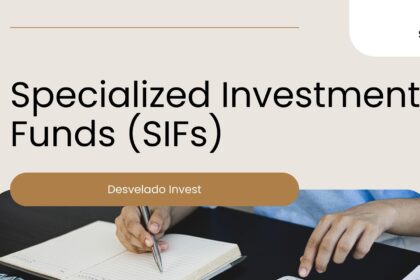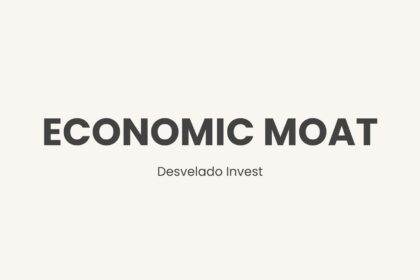Written By: Saizal Agarwal
Gensol Engineering Limited (GEL), a solar and EV services firm, was once hailed as one of India’s shining green energy prospects. The company was incorporated to offer solar consultancy, Engineering-Procurement-Construction (EPC) solutions, and later diversified into leasing electric vehicles (EVs).
Initially listed on the BSE SME platform in October 2019 and upgraded to main board of NSE & BSE in July 2023, the company saw extraordinary growth:
– Revenue: ₹61 Cr (FY17) → ₹1,297 Cr (FY24)
– Net profit: ₹2 Cr → ₹53 Cr (FY24)
– Balance Sheet: ₹10 Cr assets → ₹2,324 Cr (FY24)
– Shareholders: 155 (FY20) → 1,09,872 (FY25)
– Promoter holding fell from 70.72% to 35.12%
With a peak share price of ₹1,376, Gensol’s market cap soared to ₹4,300 Cr in Apr 2024 but. By April 2025, it had crashed to ₹122 per share, with market cap falling to ₹470 Cr.
The First Red Flag: Downgrades and Default Alerts
The first crack appeared during April/May 2024, when the management gave revenue guidance of ₹1,500 Cr for FY25. But later, they walked it back—revising the projection to ₹1,000 Cr for FY25 and ₹2,000 Cr for FY26.
This sudden revision shook investor confidence. And then came the knockout.
In March 2025, two major credit rating agencies, CARE and ICRA, downgraded Gensol’s debt ratings to “D” (Default) due to delays in loan repayments. But,
– Gensol submitted fake “No Default” statements to CRAs (Credit Rating Agencies).
– Shared forged Conduct Letters from lenders like IREDA and PFC, falsely claiming loans were serviced on time.
– IREDA and PFC categorically denied issuing such letters.
– SEBI subsequently called for detailed information from IREDA and PFC regarding the debt servicing status of loans sanctioned to Gensol along with the loan sanction letters and account statements. On reviewing the information submitted by the aforesaid lenders, multiple instances of default by the Company in Servicing their loans were observed
These deceptive practices prompted SEBI to dig deeper.
Between FY22 to FY24, Gensol took loans worth ₹977.75 Cr from IREDA and PFC, of which ₹663.89 Cr was for purchasing 6,400 Electric Vehicles (EVs) for BluSmart.
But here’s what really happened:
– Only 4,704 EVs were actually procured, costing ₹567.73 Cr.
– A massive ₹262.13 Cr remained unaccounted.
– SEBI uncovered that Funds were routed to Go-Auto (the EV dealer) — but Go-Auto transferred large portions back to Gensol or to promoter-linked entities.
SEBI obtained the bank statements of both Gensol and Go-Auto, its EV supplier. They revealed a carefully orchestrated scheme.
Gensol would receive loan disbursements into its trust account. From there, funds were transferred to Go-Auto, which had negligible balances prior to these transfers. But instead of using these funds to deliver EVs, Go-Auto immediately rerouted the money — largely to Capbridge Ventures LLP, Matrix Gas, and other entities directly controlled or influenced by Gensol’s promoters — Anmol Singh Jaggi and Puneet Singh Jaggi.
(BluSmart, once a promising EV ride-hailing service, became entangled in Gensol’s financial misconduct. As SEBI’s investigation progressed, BluSmart suspended operations across Delhi-NCR, Bengaluru, and Mumbai, leaving thousands of drivers jobless and customers seeking refunds. The company also halted new bookings and faced scrutiny over its financial practices.)
In one shocking case, ₹50 crore was transferred from Go-Auto to Capbridge on October 3, 2022. Three days later, Capbridge used ₹42.94 crore to purchase a luxury apartment in DLF’s The Camellias, Gurugram. The initial ₹5 crore advance for the flat was paid by Anmol Singh Jaggi’s mother, also using funds indirectly sourced from Gensol.
This was just one of many such transactions. In another instance, ₹43.68 crore loaned by IREDA on February 1, 2023, was routed from Gensol to Go-Auto, and then to Wellray Solar Industries — a shell company previously owned by Gensol promoters. Wellray in turn sent money to Matrix, Prescinto, and back to Gensol itself — a full loop of round-tripping.
Capbridge also routed ₹40 crore to Gensol Ventures, which was then used to pay for preferential shares in Gensol — giving the illusion that promoters were investing fresh capital. In reality, the company funded its own preferential allotment through layered transactions, an egregious violation of investor trust and regulatory norms.
By tracing the bank flows, SEBI found that Wellray had received ₹424.14 crore from Gensol and related entities and had routed ₹246 crore to promoter-linked entities, including:
– ₹25.76 crore to Anmol Singh Jaggi
– ₹13.55 crore to Puneet Singh Jaggi
– ₹63.9 crore to Matrix Gas
– ₹68 crore to GoSolar Ventures
– ₹21.6 crore to Gensol Consultants
These funds were used for personal purchases, foreign travel, jewelry, golf equipment, and share trading.
Perhaps most shockingly, ₹40.7 crore of this diverted money was used by Wellray to buy and sell Gensol’s own stock — directly inflating its price through volume manipulation. Between April 2022 and December 2024, Wellray bought and sold Gensol shares worth ₹3,390 crore combined. This was 99% of Wellray’s total trading activity.
Then came the misleading disclosures.
In January 2025, Gensol claimed it had received pre-orders for 30,000 EVs after the Bharat Mobility Global Expo. However, SEBI found that these were non-binding MOUs for 29,000 vehicles — no pricing, no delivery terms, just general expressions of interest.
A surprise site visit by NSE on April 9, 2025, to Gensol’s Pune EV factory, revealed no manufacturing activity — only 2–3 labourers and a 12-month electricity bill of just ₹1.57 lakh. The so-called plant was on leased premises, and the entire setup appeared ornamental.
Another misleading announcement involved a deal with Refex Green Mobility in January 2025, claiming a sale of 2,997 EVs and a loan transfer of ₹315 crore. This too fell apart — Refex withdrew from the deal by March.
In February 2025, Gensol said it had signed a ₹350 crore term sheet for selling its newly formed US subsidiary, Scorpius Trackers Inc., but couldn’t produce any rationale for the valuation. The company had been incorporated just seven months earlier.
By this time, SEBI had compiled overwhelming evidence.
The promoters had:
– Diverted sanctioned loans for personal use.
– Forged documents to mislead CRAs and lenders.
– Used layered companies to circulate funds.
– Funded their own preferential allotments using public money.
– Traded in their own shares through proxies.
– Made false disclosures to the exchanges.
By early 2025:
– Promoter holding dropped from 70.72% to 35.12%
– Pledged shares rose from 79.8% in Sep 2024 to 85.5% in Feb 2025
This was a major red flag. Heavily pledged shares often indicate financial stress. Promoters, desperate to prevent margin calls, may manipulate prices to maintain pledge value.
In an interview with CNBC, Anmol Jaggi claimed he would infuse funds and increase his stake. But shockingly, the very next day, creditors sold 7% of promoter-pledged shares, triggering a fresh collapse.
Earlier, Gensol had also issued a statement saying Anmol sold less than 1% of his stake as a “strategic step” to reduce pledges. In hindsight, this too was misleading.
On April 15, 2025, SEBI passed an interim order:
– Barred Anmol and Puneet Singh Jaggi from holding directorial or KMP roles.
– Prohibited Gensol and its promoters from trading in the securities market.
– Put the announced stock split on hold.
– Appointed a forensic auditor to probe Gensol and its related parties.
– Gave the promoters 21 days to respond to charges and request a hearing.
The regulator also issued a strong advisory to investors to avoid chasing flashy narratives without diligence.
From a company once touted as a green energy disruptor, Gensol Engineering has become a case study in how unchecked power, weak governance, and corporate opacity can destroy not just shareholder value — but trust itself.
And this is just the beginning. The forensic audit may yet uncover further layers to a fraud that has already shaken market confidence.






